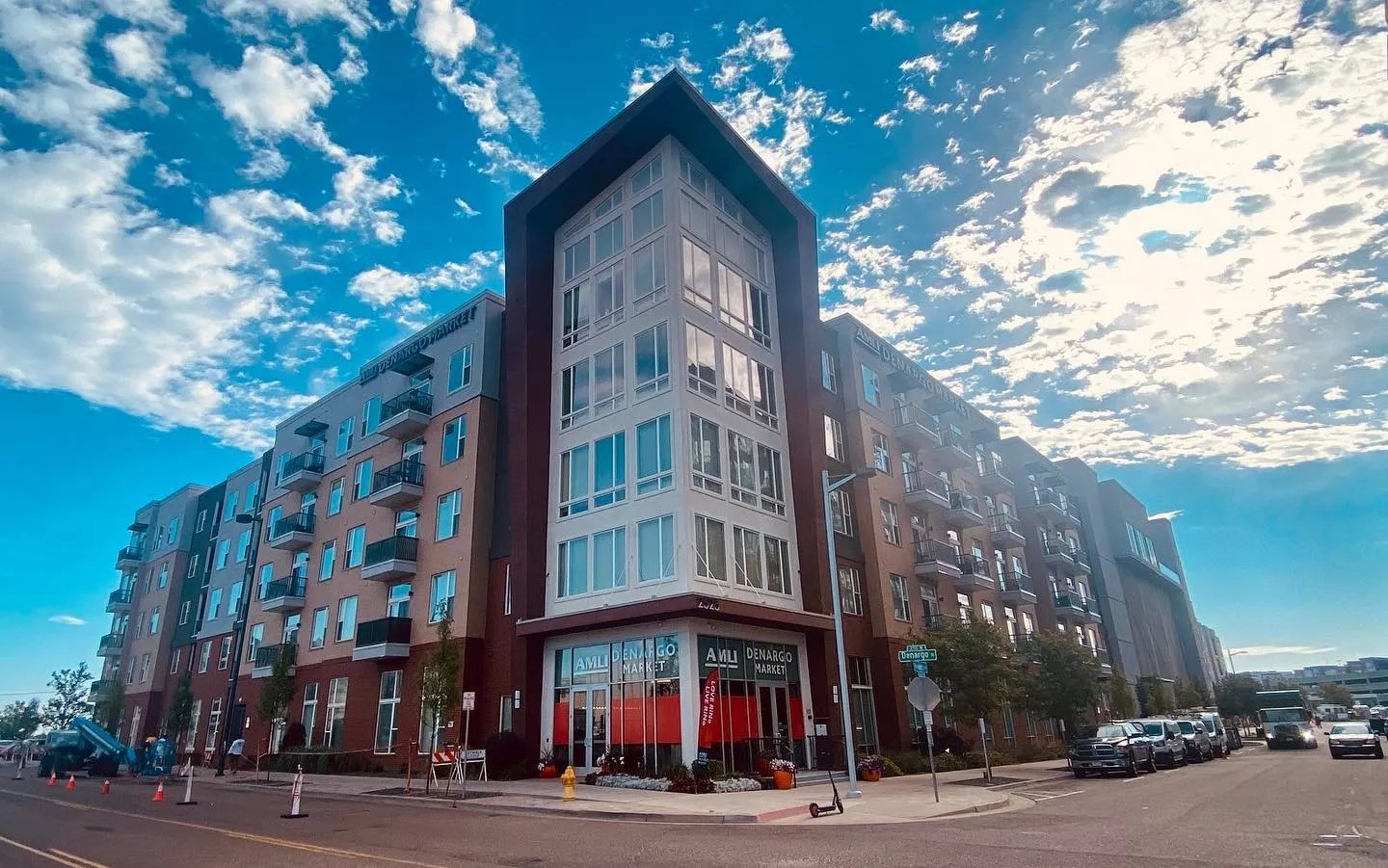
AMLI Denargo Market

Audio By Carbonatix
By January 1, every multi-unit rental property in Denver was required to be licensed under the city’s new residential rental licensing program.
Of the estimated 25,000 multi-unit rental properties in the city, only 1,722 have officially been issued licenses, according to the latest count from the Denver Department of Excise & Licenses. As of January 9, 621 licenses have been issued for single-unit properties, which must be licensed by 2024, bringing the grand total of active residential licenses to 2,343.
And it’s not just a delay in processing that accounts for the low numbers: Excise & Licenses has only 814 pending applications after ramping up staffing efforts and simplifying the process of getting a license.
“We’re doing everything we can to make this process and application as simple as possible, for both the applicant and the city,” Excise & Licenses Executive Director Molly Duplechian told Westword in November.
To get a license, properties must pass an inspection showing that they meet the city’s minimum housing standards. The license is a requirement of the Healthy Residential Rentals for All ordinance, passed by Denver City Council in May 2021 in an attempt to even the playing field between renters and landlords.
Now, Excise & Licenses will start tracking down properties that didn’t get licensed in time to get them in compliance, using the same method it uses to find unlicensed short-term rental properties, which the city began licensing in 2016 when it hired a company to scrape the internet looking for advertisements for short-term rentals, where the property is rented for one to 29 days, often through VRBO or Airbnb.
The same process will apply to residential rentals. Once the company makes a list of advertised rentals, it will compare the list to the properties listed on the licensing portal, providing the city a roster of possible unlicensed rentals.
“Our investigative team investigates each address, and if it is found that the suspected illegal operator is operating without a required license, the landlord is contacted and notified that they must get a license,” explains Eric Escudero, director of communications for Excise & Licenses.
If the landlord refuses, they will receive a citation and a $150 fine. If they continue to refuse, they could receive a second citation with a $500 fine and even a third citation with a $999 fine. Every refusal after the third will result in an additional $999 fine, but the department hopes it won’t come to that point with any landlord.
“Fines and citations are a last resort for the city,” says Escudero. “Our goal is to get landlords in compliance and use this new tool to improve the minimal housing standards in residential rental properties across Denver.”
Those minimum housing standards include working heat, running water, fire safety measures, proper electrical wiring and sufficient egress. Escudero says the desired outcome of the licensing process is that landlords who fail to provide safe living conditions will improve.
Excise & Licenses will also work with other city departments to identify unlicensed properties, looking into complaints that come in through 311 and the Denver Department of Public Health and Environment, which regularly investigates properties after it receives complaints about unhealthy living conditions.
In addition, once every property is licensed, the city will finally have an accurate count of the number of rental properties in Denver, which it has never had before. It estimates that there are about 25,000 multi-unit and 25,000 single-unit rentals, but has had no proof of the accuracy of those estimates and has little other data about the state of the rentals offered in the city.
“This changes that,” Escudero says.
Of the licenses issued by January 4, just 16 percent of properties pay for all utilities (saving renters from the current craziness of Xcel’s suddenly significantly higher charges for gas). The breakdown shifts when the utilities are split out, with 17 percent of landlords paying for electricity, 29 percent paying for gas, 42 percent paying for water, and 31 percent paying for trash. Additionally, 87 percent of licensed properties have a smoke-free policy.
Those numbers, Escudero notes, are based solely on what landlords report in their applications, so if landlords mis-report, the numbers may not be completely accurate.
Landlords must pay a $50 application fee plus a license cost based on the number of units on a property. Those fees are $50 for a single dwelling unit, $100 for two to ten units, $250 for eleven to fifty units, $350 for 51 to 250 units, and $500 for 251 or more units. There is a fee exception for affordable- or public-housing properties, and each license lasts four years.
Fifty-three of the licenses issued so far are for properties with 251 or more units, representing approximately 38,000 units in total. For properties with 51 to 250 units, there are 145 issued licenses that account for about 33,000 units.
Excise & Licenses has discounted the application fee from $50 to $25 for single-dwelling units until 2024 to help incentivize those properties to get licensed before the deadline.
Curious about whether your rented apartment or home is licensed? Type your address into the city’s Permitting and Licensing Center to see if your property is licensed or has a pending application.